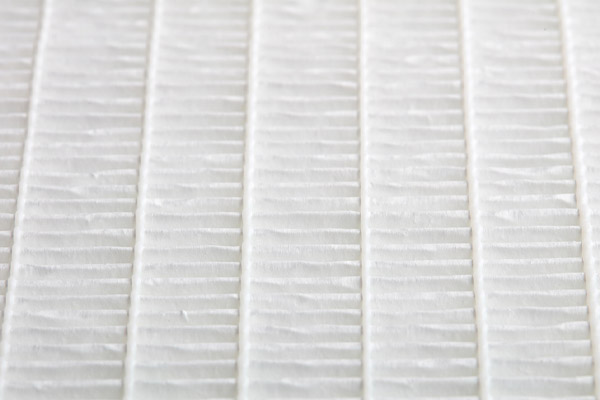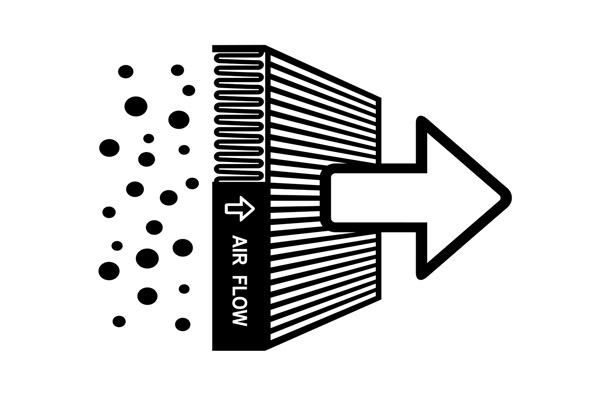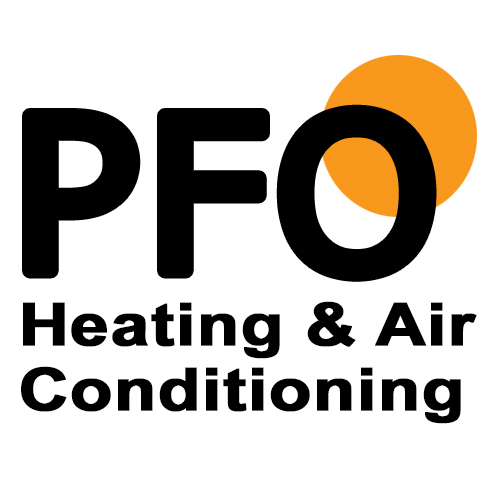
Every household inevitably contends with the presence of airborne pollutants. These microscopic particles may elude the naked eye, but their impact on health and comfort is unmistakably tangible. For families prioritizing the purity of their indoor air, it’s essential to replace HVAC filters diligently. Adherence to the manufacturer’s suggested schedule is a good starting point, yet a monthly inspection often reveals the need for more frequent replacements. This holds especially true for homes with specific air quality challenges. Selecting filters that align with the system’s requirements and the household’s unique needs is crucial. Understanding the filter’s MERV rating is vital to this selection process. This article delves into the significance of MERV ratings as a decisive factor in purchasing HVAC filters.
Defining MERV Rating
Contents [hide]
Navigating through air filters for the first time can be perplexing, with many products touting themselves as the superior choice. However, a bit of research swiftly separates the contenders from the pretenders. Grasping the technical specifications is key, including familiarizing oneself with crucial terminologies such as “MERV.” MERV, short for Minimum Efficiency Reporting Value, stands as a pivotal metric in gauging an air filter’s proficiency in trapping unwanted particles. A higher MERV rating filter indicates its enhanced ability to purify air.
How MERV Ratings Operate

The MERV rating scale spans from 1 to 20. While a higher rating might seem preferable, specific situations call for a mid-range MERV rating. For instance, highly sensitive areas like cleanrooms, hospitals, and nuclear facilities often opt for filters within the MERV 16 to 20 bracket due to their stringent air purity requirements. Conversely, air filters usually fall within the MERV 5 to 13 range in typical residential settings. Filters rated below MERV 5 tend to be inadequate in maintaining optimal indoor air quality. On the other hand, filters exceeding a MERV 13 rating can potentially hinder the performance of standard residential HVAC systems.
How Is MERV Rating Determined?
Filters undergo a series of stringent testing procedures to ascertain their MERV rating. These tests assess the filter’s efficiency across a spectrum of particle sizes, categorized into three distinct ranges:
- E1 encompasses ultra-fine particles between 0.3 to 1.0 microns.
- E2 covers fine particles from 1.0 to 3.0 microns.
- E3 deals with larger particles sized from 3.0 to 10 microns.
The particles in these tests are imperceptible to the human eye, as we typically cannot discern objects smaller than 40 microns. To put this into perspective, human hair is about 50 microns in diameter. Advanced laboratory instruments are adept at detecting these minuscule particles. These tiny particles are dispersed through the filters, and the quantity that penetrates or is captured by the filter is meticulously counted. The MERV rating is determined based on its least efficient test, aligning with its purpose of indicating the ‘minimum efficiency.’ For instance, a product must demonstrate the ability to capture 95% or more of the particles to be determined as a MERV 16 filter.
MERV and Your Indoor Air Quality
The indoor air quality is crucial in determining the health and comfort of your family. If allergic reactions are common in your household, it can be beneficial to upgrade to a filter with a higher MERV rating. A filter with a superior MERV score is more adept at removing airborne pollutants, potentially leading to a noticeable decrease in typical allergy symptoms. This upgrade can result in fewer complaints of fatigue, headaches, eye irritation, skin rashes, sore throats, persistent sneezing, and runny noses. Additionally, a higher-rated filter protects your home from the accumulation of dust and bacteria, reducing the frequency of illness and minimizing the risk of contagions, particularly for family members with compromised immune systems. A high-MERV filter can thus be a significant asset in maintaining a healthier indoor environment.
Your Energy Use & MERV Ratings
Air filters with finer openings capture more airborne particles but also restrict airflow, compelling your heating and cooling system to use more energy. This is a crucial consideration, especially since opting for the highest MERV ratings, like MERV 20, isn’t typically advisable for homes not designed for such intense filtration. These high-MERV filters can lead to increased energy consumption and might accelerate wear and tear on HVAC systems. In residential environments, air filters generally range from MERV 8 to 13, providing a harmonious balance between maintaining good air quality and avoiding a steep rise in energy bills. For optimal HVAC filter selection for your home, consulting with an HVAC professional is always recommended.
How Your HVAC Air Filter Influences Your HVAC System’s Condition
Adhering to the recommended MERV rating for air filters in your forced-air heating and cooling system is critical to avoid potential issues. Choosing filters with lower-than-recommended ratings might seem cost-effective initially, but they can lead to costly system problems over time. Such filters lack the efficiency to trap sufficient pollutants, leading to an accumulation of dust and bacteria in the ducts, reduced system efficiency, and increased maintenance costs. Conversely, opting for a filter with a MERV rating higher than recommended can impede airflow, accelerate system wear, and diminish the overall lifespan of your HVAC system.
Should I Purchase Filters With High MERV Ratings?
The inclination to associate higher ratings with superior quality is common, as seen in product reviews or hotel ratings. However, this principle doesn’t uniformly apply to MERV ratings for air filters. While it’s true that high-MERV filters are more effective at trapping pet hair, bacteria, and pollen, they also restrict airflow through the HVAC system, which can be counterproductive. This decreased airflow can lead to reduced indoor comfort, increased energy usage, and higher monthly bills. Therefore, it’s essential to prioritize compatibility when selecting air filters, ensuring they match the specifications of your HVAC system.
What MERV Rating Should My Filter Have?

Selecting the right MERV rating for your HVAC system’s air filter is not a one-size-fits-all decision, as each system has unique requirements. The best starting point is to consult your system’s owner’s manual for specific recommendations. Generally, MERV 8 and 13 filters strike a good balance for most homes, effectively removing unwanted particles without overburdening the HVAC system. This range ensures efficient operation and optimal results over time. In homes with fewer occupants and no pets, a MERV 8 filter typically suffices. However, a MERV 11 filter may be more appropriate in busier households with pets. For homes with individuals having compromised immune systems, opting for a MERV 13 filter can be crucial to maintain health and well-being.
Conclusion
Understanding the MERV rating is crucial when selecting air filters, as it reflects the filter’s minimum efficiency in capturing microscopic impurities. Filters with low MERV ratings are not advisable due to insufficient air cleaning capabilities. Conversely, while effective in filtration, high MERV ratings may not be suitable for all systems and can adversely affect system performance and energy efficiency. For most homes, mid-range filters offer a balanced solution, typically between MERV 8 and 13. Ultimately, the optimal choice in MERV rating hinges on each household’s specific requirements and circumstances.
Contact PFO Heating & Air Conditioning for Expert HVAC Services
At PFO Heating & Air Conditioning, we stand as the top choice for heating and cooling solutions in the Greater Princeton, NJ area. Our skilled technicians, all professionally certified, excel in a wide range of HVAC services, including tune-ups, repairs, installations, and replacements. With a commitment to excellence, we ensure your system receives the utmost care and service. Recognized as the top HVAC service provider in the region, we’re always ready to meet your needs.
We pride ourselves on offering the area’s most cost-effective heating and cooling services. Our reputation is built on delivering top-quality service at affordable prices. Our tune-ups are designed to enhance comfort and energy efficiency, helping to cut down your heating and cooling expenses. Whether for your home or business, our team will guide you to the best HVAC solutions that fit within your financial plan. We stand behind our work with a satisfaction guarantee. Don’t hesitate to contact PFO Heating & Air Conditioning to arrange a service appointment. Call us now!
Click here to contact us now or call us at (800) 253-9001 to find out more! Click the link to view our service area.

Related Articles:
- What Is The Difference Between a Portable and Whole-Home Air Filtration System?
- 9 Ways You Can Improve Indoor Air Quality During Winter
- Are Your Indoor Air Quality Standards Up To Par In Your Hamilton Home?
- Do You Believe These Indoor Air Quality Myths?
- What Homeowners Need To Know About Their HVAC Air Filters



